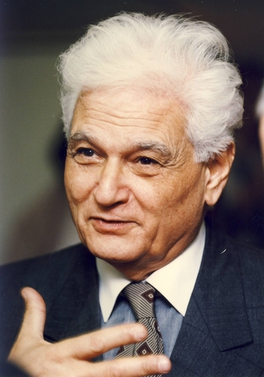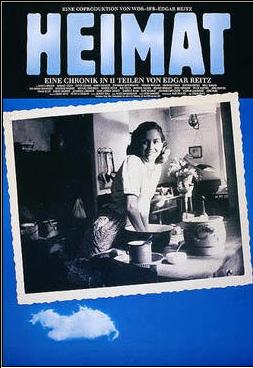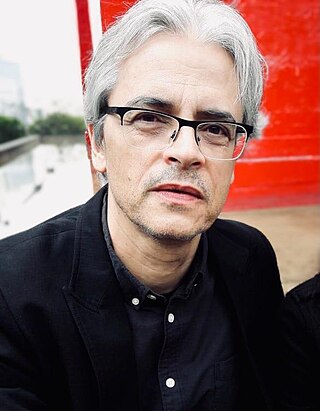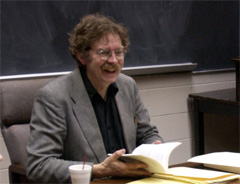Deconstruction is any of a loosely-defined set of approaches to understanding the relationship between text and meaning. The concept of deconstruction was introduced by the philosopher Jacques Derrida, who described it as a turn away from Platonism's ideas of "true" forms and essences which take precedence over appearances. Since the 1980s, these proposals of language's fluidity instead of being ideally static and discernible have inspired a range of studies in the humanities, including the disciplines of law, anthropology, historiography, linguistics, sociolinguistics, psychoanalysis, LGBT studies, and feminism. Deconstruction also inspired deconstructivism in architecture and remains important within art, music, and literary criticism.
The Sokal affair, also called the Sokal hoax, was a demonstrative scholarly hoax performed by Alan Sokal, a physics professor at New York University and University College London. In 1996, Sokal submitted an article to Social Text, an academic journal of cultural studies. The submission was an experiment to test the journal's intellectual rigor, specifically to investigate whether "a leading North American journal of cultural studies—whose editorial collective includes such luminaries as Fredric Jameson and Andrew Ross—[would] publish an article liberally salted with nonsense if (a) it sounded good and (b) it flattered the editors' ideological preconceptions."

Jacques Derrida was an Algerian-born French philosopher. He developed the philosophy of deconstruction, which he utilized in numerous texts, and which was developed through close readings of the linguistics of Ferdinand de Saussure and Husserlian and Heideggerian phenomenology. He is one of the major figures associated with post-structuralism and postmodern philosophy although he distanced himself from post-structuralism and "never used this word [postmodernity]".

Jean Paul Gustave Ricœur was a French philosopher best known for combining phenomenological description with hermeneutics. As such, his thought is within the same tradition as other major hermeneutic phenomenologists, Martin Heidegger, Hans-Georg Gadamer, and Gabriel Marcel. In 2000, he was awarded the Kyoto Prize in Arts and Philosophy for having "revolutionized the methods of hermeneutic phenomenology, expanding the study of textual interpretation to include the broad yet concrete domains of mythology, biblical exegesis, psychoanalysis, theory of metaphor, and narrative theory."
John David Caputo is an American philosopher who is the Thomas J. Watson Professor of Religion Emeritus at Syracuse University and the David R. Cook Professor of Philosophy Emeritus at Villanova University. Caputo is a major figure associated with postmodern Christianity and continental philosophy of religion, as well as the founder of the theological movement known as weak theology. Much of Caputo's work focuses on hermeneutics, phenomenology, deconstruction and theology.
Christopher Charles Norris is a British philosopher and literary critic.
Postmodern theology, also known as the continental philosophy of religion, is a philosophical and theological movement that interprets theology in light of post-Heideggerian continental philosophy, including phenomenology, post-structuralism, and deconstruction.

Heimat is a series of films written and directed by Edgar Reitz about life in Germany from the 1840s to 2000 through the eyes of a family from the Hunsrück area of the Rhineland-Palatinate. The family's personal and domestic life is set against the backdrop of wider social and political events. The combined length of the 5 films – broken into 32 episodes – is 59 hours and 32 minutes, making it one of the longest series of feature-length films in cinema history.

Paulo Cesar Duque-Estrada is a Professor of Contemporary Philosophy and Associate Vice-President for Academic Affairs at the Pontifical Catholic University of Rio de Janeiro (PUC-Rio). He has served as executive secretary (2010–2011), vice-president (2011–2012) and president (2012–2013) of the National Forum of Associate Vice-Presidents for Research and Graduate Programs (FOPROP).

David Wood was Centennial Professor of Philosophy, and Joe B. Wyatt Distinguished University Professor, at Vanderbilt University.
20th-century French philosophy is a strand of contemporary philosophy generally associated with post-World War II French thinkers, although it is directly influenced by previous philosophical movements.
Bill Martin is a professor of philosophy at DePaul University whose academic work concerns Derrida, Sartre, Marxist theory, Aesthetics, and critiques of Richard Rorty. Martin has also written on progressive rock bands including Yes.
Hugh J. Silverman was an American philosopher and cultural theorist whose writing, lecturing, teaching, editing, and international conferencing participated in the development of a postmodern network. He was executive director of the International Association for Philosophy and Literature and professor of philosophy and comparative literary and cultural studies at Stony Brook University, where he was also affiliated with the Department of Art and the Department of European Languages, Literatures, and Cultures. He was program director for the Stony Brook Advanced Graduate Certificate in Art and Philosophy. He was also co-founder and co-director of the annual International Philosophical Seminar since 1991 in South Tyrol, Italy. From 1980 to 1986, he served as executive co-director of the Society for Phenomenology and Existential Philosophy. His work draws upon deconstruction, hermeneutics, semiotics, phenomenology, aesthetics, art theory, film theory, and the archeology of knowledge.
Roberto Rino Magliola is an Italian-American academic specializing in European hermeneutics and deconstruction, comparative philosophy, and inter-religious dialogue. He is retired from National Taiwan University and Assumption University of Thailand.
This is a list of articles in continental philosophy.
Niall Lucy was an Australian writer and scholar best known for his work in deconstruction.
The following is a bibliography of John D. Caputo's works. Caputo is an American philosopher closely associated with postmodern Christianity.

Leonard "Len" Lawlor is Edwin Erle Sparks Professor of Philosophy at Pennsylvania State University. He specializes in nineteenth- and twentieth-century Continental philosophy.

Mark Dooley is an Irish philosopher, writer and newspaper columnist. A specialist in continental philosophy, theology and the philosophy of religion, he is the author of several books, including The Politics of Exodus: Kierkegaard's Ethics of Responsibility (2001), Roger Scruton: The Philosopher of Dover Beach (2009), and Why Be a Catholic? (2011).





